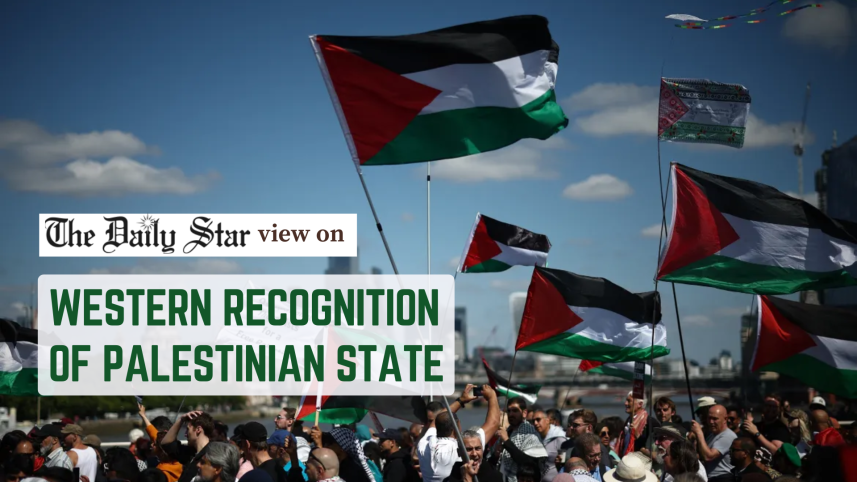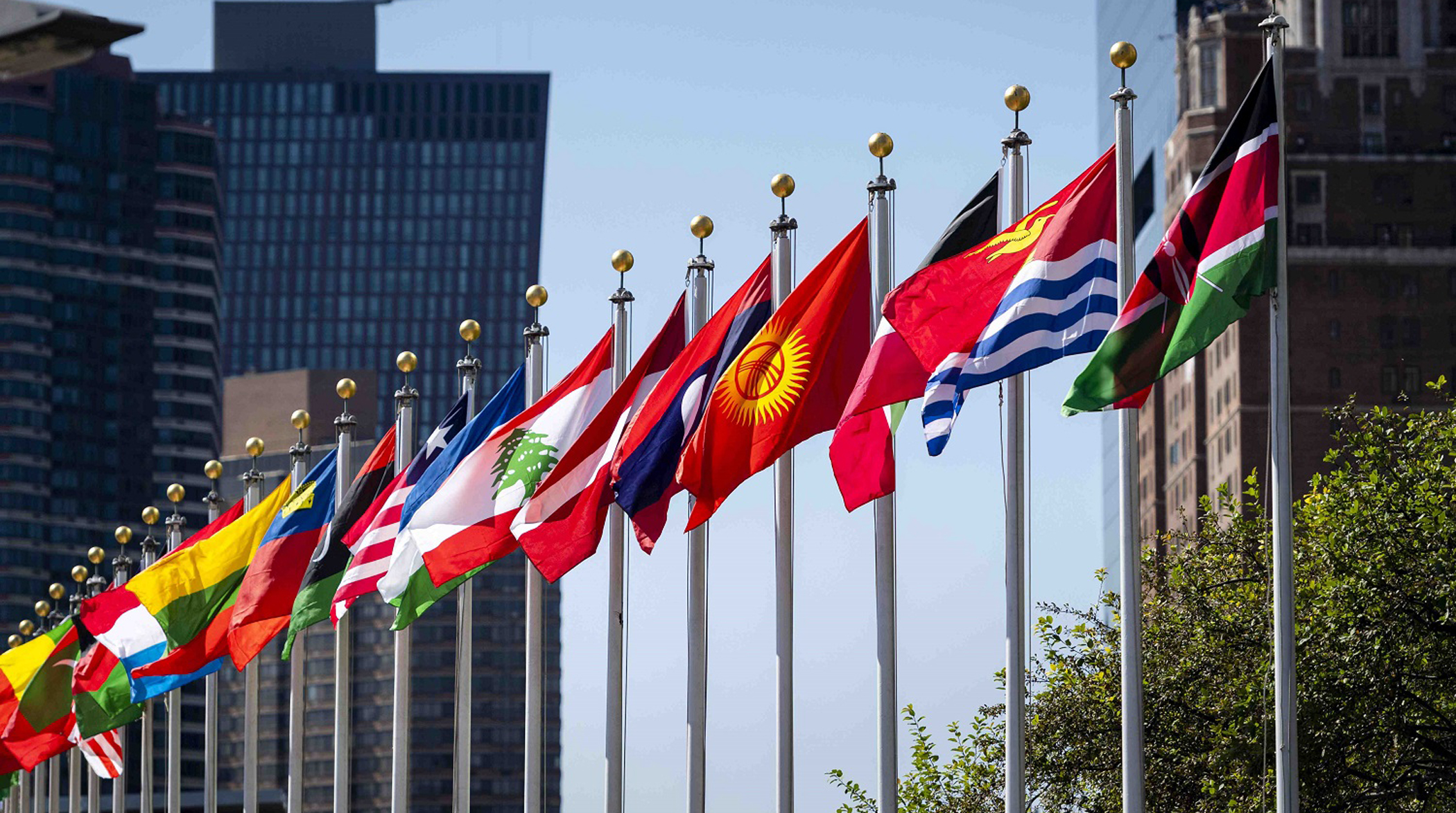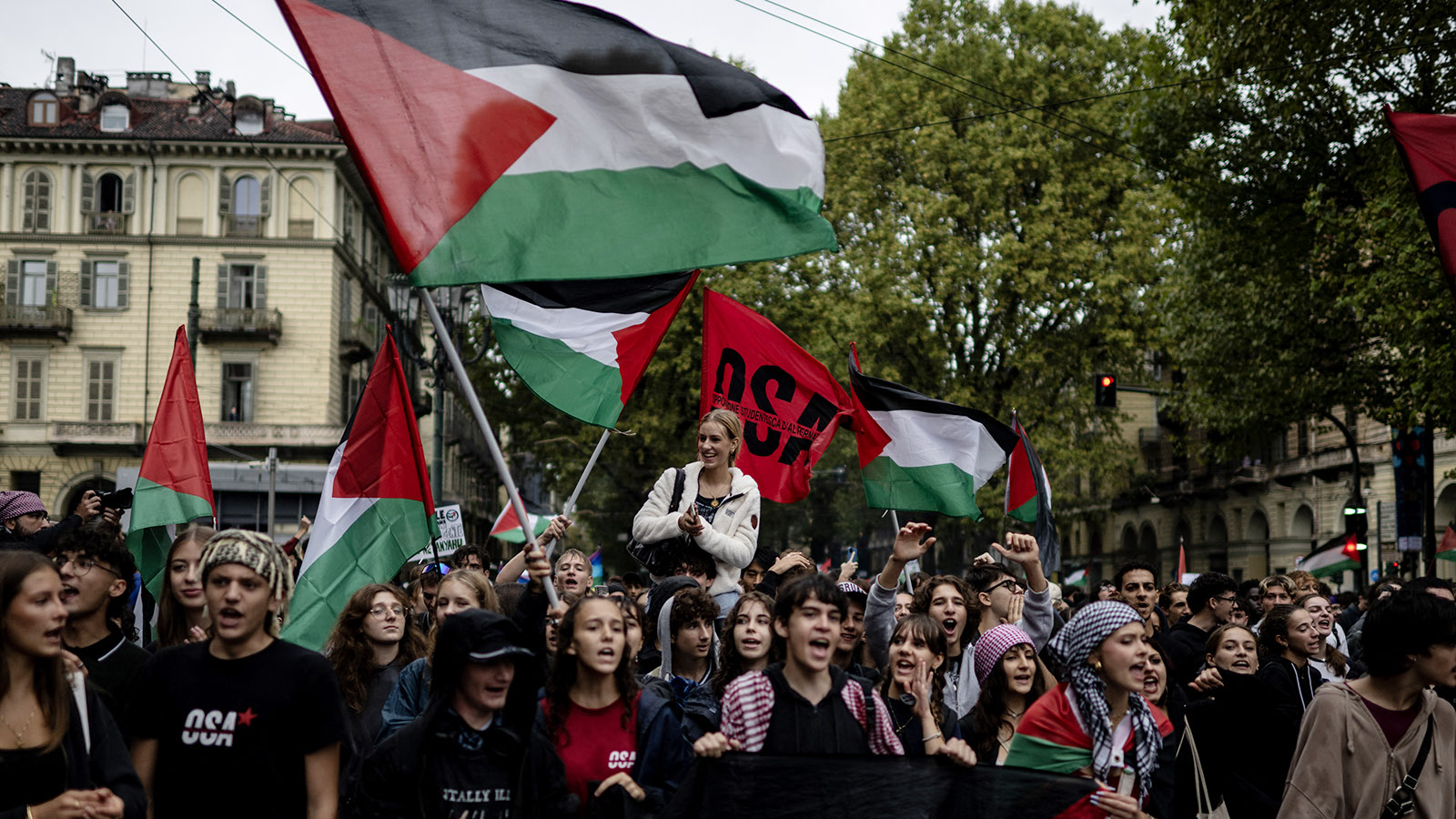Palestine recognition must be backed by action

We cannot stress enough the significance of the decision by Britain, Canada, Australia and Portugal to formally recognise a Palestinian state. For decades, Palestinians have been denied their right to self-determination, with their lives and livelihoods steadily eroded by Israeli occupation and brutalities. Coming against this backdrop, the recognition aligns these Western states with more than 140 other countries also backing Palestinians' aspiration to forge an independent homeland free from Israeli oppression. Britain's move carries particular weight, given its pivotal role in Israel's creation through the Balfour Declaration. But symbolism alone will not stop the carnage in Gaza.
As it is, the latest recognition has come far too late, and without immediate measures to halt Israel's continued assaults, its impact will be minimal. In the latest war in Gaza, more than 65,000 Palestinians have been killed, famine has spread, and displacement has become near total. Even as the recognition was announced, Israel continued its bombardment and daily raids across the occupied West Bank, advancing annexation plans that undermine the very notion of a viable Palestinian state. What, therefore, is required now is concrete action to end the war. This means exerting maximum pressure for an immediate and permanent ceasefire, opening corridors for humanitarian aid, and stopping Israel from annexing more Palestinian territory. Crucially, Israel must be held accountable under international law for its genocide in Palestine.
Another question related to the recognition is: why have these Western powers still not suspended their military cooperation with Israel, including the sale of arms and technology that are being used to commit atrocities? The continued provision of weapons undermines the very principles of human rights that Western leaders like to talk about. True justice for Palestinians cannot be achieved while the machinery of war is still being supplied.
This week's recognition should, therefore, be the start of a broader shift. Global leaders who have joined the move must follow up with impactful measures including arms embargoes, sanctions on individuals responsible for war crimes, and support for international investigations into Israel's crimes. They must also help rebuild Gaza and ensure that Palestinians can exercise sovereignty over their own land, free from occupation and apartheid. Palestinians themselves have welcomed the recognition but stressed, rightly, that it must translate into changes on the ground. After decades of dispossession, the international community owes them more than symbolic gestures; they must help create the path to a genuine statehood.
 For all latest news, follow The Daily Star's Google News channel.
For all latest news, follow The Daily Star's Google News channel. 

Comments